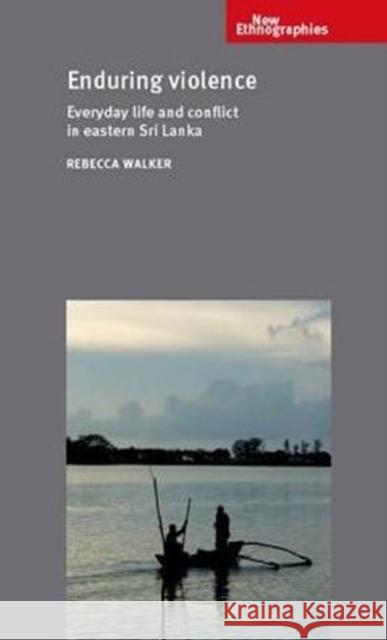Enduring Violence: Everyday Life and Conflict in Eastern Sri Lanka » książka
Enduring Violence: Everyday Life and Conflict in Eastern Sri Lanka
ISBN-13: 9781526108630 / Angielski / Miękka / 2016 / 256 str.
Located in the war-torn eastern province of Sri Lanka, this book provides a rich ethnography of how Tamil-speaking communities in Batticaloa live through and make sense of a violence that shapes everyday life itself. The core of the book comes from the author's two-year close interaction with a group of (mainly women) human rights activists in the area who work in clandestine, informal ways to support families whose loved ones have been threatened, disappeared or killed, and build networks of trust in a climate of everyday violence that has encircled the north and east of the island during and after the civil war. What makes this group (known as the Valkai group) unique is how it remained firmly embedded within the crevices of daily life, threaded with social tensions, instabilities, and ambiguities, rather than seek more formal recognition through activist circles or NGOs.
The book combines an examination of the activities and strategies adopted by the Valkai group with an understanding of how everyday life under ongoing conditions of civil warfare moves between the various registers of the ordinary and weaves into itself moments, affects and strategies that deal with not only extraordinarily difficult memories but also the demands of the present. In doing so, new ways of looking at the relation between violence and everyday life are suggested. As Sri Lanka faces up to the enormity of the task of 'post-war reconciliation', this book aims to create a wider conversation about grief, resistance and healing in the context of violence and its long afterlife.











